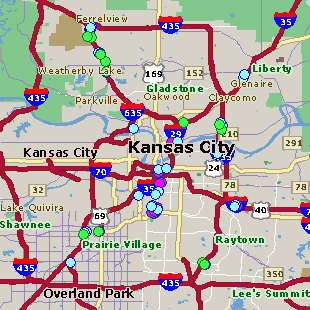I could spend all day refuting sloppy ‘accepted as true with no fact-checking’-reporting done by news organizations on the issue of Internet Overcharging. Facts not in evidence:
- Assumptions that what is “fair” in wireless must be fair on wired networks;
- Everyone is doing it around the world so North America should do the same;
- People are not paying “their fair share” for the growing amount of usage.
It’s all a big bucket of wrong, and the only thing getting rolled over month after month are consumers.
Yesterday, it was GigaOM telling us “Comcast DSL” (?) had no usage caps at all. (They do — 250GB per month, and they sell cable broadband, not landline DSL.)
Today, it’s ComputerWorld‘s Matt Hamblen, who blows it right in the first paragraph:
Data caps on nearly all wireless and wired networks in the U.S. seem likely to be in place soon, despite the latest unlimited data offers from Verizon Wireless and Sprint.
Impressive crystal ball gazing there. Nearly all networks will be capped? Even though Sprint is banking its near-future on selling unlimited use plans and the economics of wireless are considerably different than wired broadband, Hamblen boldly predicts near-universal usage caps, even as most providers have no formal caps at all.
Hamblen’s journey starts with a survey of capped broadband offerings on the wireless side. Spectrum issues and the nature of wireless technology makes providing unlimited use plans more challenging, especially when users consider their mobile broadband service a home broadband replacement. Some have even left peer-to-peer software running in the background 24 hours a day. It was this, according to Clearwire, that did in that provider’s unlimited service, which is now heavily speed-throttled in many areas.
Stop the Cap! has argued repeatedly current generation wireless broadband will never be a suitable replacement for traditional wired broadband, unless your use is confined to web browsing, e-mail, and occasional multimedia. The capacity isn’t there and the technology is susceptible to serious speed loss in congested areas. That is not to say future wireless technology might not change this reality. The political debate over re-purposing unused UHF television channel frequencies for wireless broadband is just getting underway in Washington.
But trying to draw arguments from the wireless world for usage caps across wired broadband networks is where the line ends.
Hamblen predicts because AT&T wants to gouge its wired broadband customers (many who are now cancelling service and heading back to the cable company, when possible), now everyone will be going to the Internet Overcharging party:
Data caps on both wired and wireless customers are widespread, even if they annoy some smartphone early adopters in the U.S. Ars Technica listed the policies of 11 different wired network data caps for several different countries.
Hamblen’s report isn’t simply false — it’s sloppy. Wired broadband usage limits are not widespread in the United States, and despite Ars Technica‘s sampler, the trend globally is away from usage-capped wired broadband, not towards it. Evidently Hamblen didn’t bother to read Matthew Lasar’s piece, which includes references to BT in the United Kingdom moving towards unlimited use service in the near future, Canadian consumers’ victories against usage-based billing preserving unlimited use plans from resellers, and Australia’s own ever-increasing usage allowances.
In fact, even Lasar missed the fact several Australian ISPs now sell unlimited use plans themselves — something unheard of just a few years ago. As in Britain, some users who consume over 300GB in a month may find their speeds reduced at peak usage times, but only until capacity improvements allow the throttles to be removed. Even South Africa, one of the most challenging places to deliver 21st century broadband, has providers delivering unlimited use service.
Hamblen then moves on to another inaccurate argument — consumers will simply reserve their high bandwidth downloads on smartphones for the office Wi-Fi network, that will also face usage caps.
Except virtually every usage cap that does pop up in the United States applies to residential accounts only. Commercial accounts are exempt, as are the Wi-Fi networks powered by them, especially for cable broadband-based service that is increasingly popular with small and medium sized companies.
Although Wall Street wants usage caps and regularly says they are inevitable, that does not make them reality. Consumers certainly do not want them and will cancel service with a provider if an uncapped alternative exists. While certain providers, their backers on Wall Street, and some dollar-a-holler groups defending them all have a financial interest in pushing memes about Internet Overcharging, members of the media should not.


 Subscribe
Subscribe



